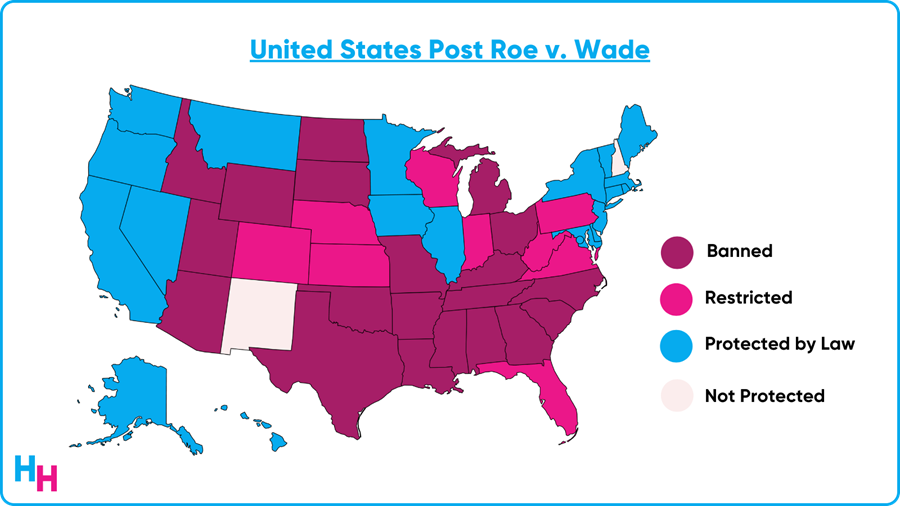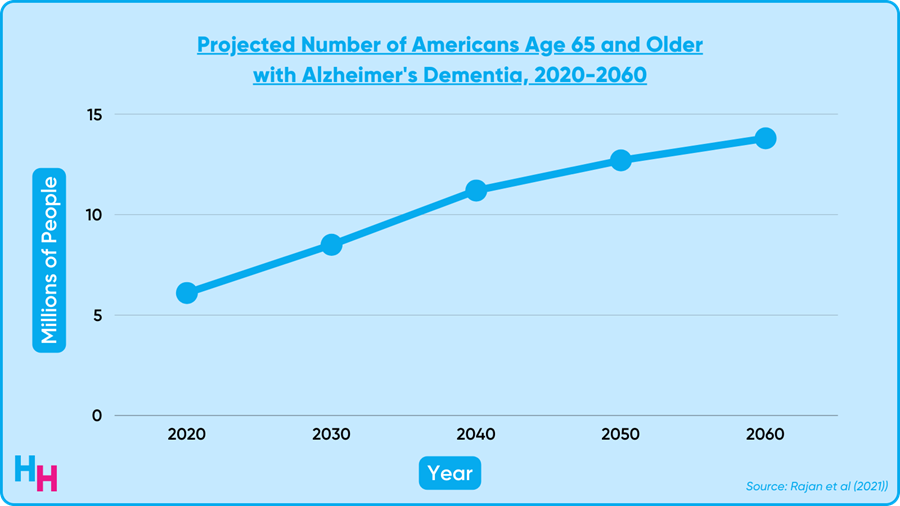POLICY
“Roe was egregiously wrong”
Leaked documents from the Supreme Court reaffirmed what many expected but wished would never happen: a strike down of the Roe v Wade decision.
Roe was egregiously wrong from the start. Its reasoning was exceptionally weak, and the decision has had damaging consequences. And far from bringing about a national settlement of the abortion issue, Roe and Casey have enflamed debate and deepened division. — Justice Samuel Alito
Recall that Roe v Wade established a constitutional right to abortion before fetal viability (around 23 weeks) and prevented states from banning abortion.
Catch Up
Last November, the Supreme Court justices heard arguments over a Mississippi law that bans abortion after 15 weeks of pregnancy with exceptions for medical emergencies or several fetal abnormalities incompatible with life. Jackson’s Women Health Organization—Mississippi’s only abortion clinic—filed a lawsuit to block the law, arguing it was unconstitutional.
The lawsuit quickly moved through the courts, landing on the Supreme Court’s desk. Based on the arguments in November, it seemed most Supreme Court justices would vote to uphold the Mississippi law, thereby striking down the Roe v Wade decision.
My Thoughts
I will die saying this: abortion is health care. To deny access to safe and common abortion procedures before viability is unjust and neglects patient autonomy—a pillar of medical ethics.
An abortion procedure is care that is simple, extremely safe and way more common than you think. For example, around one in five pregnancies in the U.S. end in induced abortion. While you may expect abortion rates to decrease once the Supreme Court releases its final draft, they won’t decrease. People will continue to get abortions—it’s just a matter of safety. This is problematic from a health and equality standpoint.
Abortion restriction laws are inherently pro-inequality. Take Texas’s heartbeat ban: pregnant people needing an abortion face a 20-fold increase in driving distance to reach the nearest abortion clinic. That’s assuming everyone has access to the transportation (and funds) needed to travel such distances and can afford to take off from work.
Companies like Apple, Salesforce and Amazon are being proactive, offering to cover expenses for abortion procedures if the employee has to travel out of state. But, it’s unlikely these employees fall under the “low income” group, missing the populations who’ll suffer the most from restrictive abortion bans.
My Predictions
Nearly half the country will immediately ban abortion once the ruling is final.

I have two predictions:
- Telemedicine abortion will likely become even more popular since it’s so accessible. Patients will travel across state lines, pick up mifepristone and misoprostol, drive back to their homes and carry out the medical abortion in the comfort of their homes.
- More progressive states will create “safe havens” for patients receiving abortion procedures and doctors providing them. Look at Connecticut. They’ve already done it.
- The states that ban abortion will have higher maternal mortality rates than those that protect abortion by law.

HOSPITALOGY THIS WEEK
Hospitalogy’s Week Ahead
Be on the lookout for the Hospitalogy sends this week (Tuesday morning & Thursday mid-day)! Tuesday I’ll be following up on staffing firm’s earnings reports to see if they match up with hospitals’ contract labor narrative that I covered in last Thursday’s send. I’ll also be diving into the other biggest healthcare stories from the week.
Then, assuming there’s no insane, crazy story that drops this week, on Thursday I’ll be taking a dive into the care platform landscape, starting with Privia, ApolloMed, agilon, and P3 Health Partners. It’s a space I want to learn more about too, so let’s dive in together to understand the economics of their platforms.
See ya Tues & Thurs, Hospitalogy fam.
Join the thousands of healthcare professionals who read Hospitalogy
Subscribe to get expert analysis on healthcare M&A, strategy, finance, and markets.
No spam. Unsubscribe any time.

PHARMA
Biogen Throws in the Towel
Biogen’s CEO Michel Vounatsos is stepping down after a five-year run. Biogen needs a turnaround. The company’s “revolutionary” Alzheimer’s drug, Aduhelm, was a massive flop, putting a dent in the company’s financials.
The Deets
The FDA approved Aduhelm in June 2021. While there was a lot of hype around Aduhelm being the first Alzheimer’s drug approved in 18 years, the clinical trial data was shaky. Several FDA advisory committee members ended up resigning, and hospitals across the U.S. said they wouldn’t carry the drug because of its iffy efficacy.
Biogen originally priced the drug at $56,000 for one year of treatment but slashed the price in half to $28,000/year after continuous complaints from hospitals (and much of the medical society) that the drug’s high cost was not worth its benefits. To hammer the nail in the coffin, CMS announced it would restrict Aduhelm coverage to patients only in clinical trials, citing insufficient evidence that its use is reasonable and necessary.
Biogen’s plan to shake things up in the company, including cutting the Aduhelm commercial team, is expected to save the company around $1B.
My Thoughts
The medical society, patients and families have long awaited a groundbreaking Alzheimer’s drug. Aduhelm’s turnout is a letdown.
Unfortunately, Alzheimer’s is only becoming more prevalent in society: the number of people living with the disease is expected to triple from 5.8M to 14M by 2060. Read: an Alzheimer’s drug is desperately needed.

My Predictions
Biogen will gear up to acquire another biotech firm. They recently sold their equity stake in a joint venture with Samsung Biologics and bought into Roche’s cancer drug mosunetuzumab. Their acquisition capacity was/is expected to increase to $10B. If they don’t make M&A moves, then the next option is to expand their focus outside of the nervous system. This, however, would be a major shift given the company’s mission is centered on neuroscience.

DIGITAL HEALTH
Cerebral: Digital Health’s Icarus
Mental health startup Cerebral is under a federal investigation for excessive prescribing of controlled ADHD medication. While their story sounds eerily similar to Purdue Pharma’s, I do think Cerebral had/has the potential to do good for patients.
Catch Up
Cerebral is a digital mental health startup founded right before the pandemic. The company provides a subscription-based, virtual service for patients to access therapy, counseling and medications for depression, anxiety and ADHD. In response to the pandemic, the DEA quickly adopted policies to allow DEA-registered clinicians to prescribe controlled substances virtually throughout the public health emergency.
The Deets
Cerebral was in the right place at the right time and saw business boom during the pandemic. They’re now valued at over $4.8B.
Given the DEA’s relaxed prescribing rules, Cerebral was able to hire DEA-registered clinicians to evaluate patients for ADHD and prescribe them medication like Adderall. And boy did they (and other similar companies) prescribe:
- Total Adderall prescriptions jumped 10% to 41.4M from 2020 to 2021.
I can’t imagine, though, the true incidence of ADHD diagnoses jumped like that, too. Something’s up.
Anyway, Cerebral employees started speaking out, saying the company’s prescribing practices were unethical. The company also aggressively marketed how easy it was to get ADHD treatment (my Instagram was filled with Cerebral marketing). ADHD diagnoses were being made within short, 30-minute appointment slots, and over 50% of patients who subscribed to the company’s service with concerns they had ADHD left with an ADHD diagnosis. That’s a pretty high hit rate, in my opinion.
Pharmacies like CVS, Walmart and Truepill started catching on to Cerebral’s prescribing practices and recently cut off Adderall prescriptions being sent from the company.
My Thoughts
Cerebral has worked to destigmatize mental health conditions like ADHD. Adults who had gone their whole life struggling with attention or hyperactivity but feared seeking help for it could easily get tested for the condition and receive appropriate therapy. This is especially true for women who’ve historically been underdiagnosed. Therefore, I’m sure Cerebral has made a remarkable difference in people’s lives regarding productivity.
But now, the company is being scrutinized for essentially being an “Adderall Mill.” Like opioids, Adderall is a class 2 substance because of its high risk of misuse and addiction. Also, like opioid drug makers, Cerebral aggressively marketed its ADHD service.
We don’t have any data yet regarding the increased misuse of Adderall. Still, if it mirrors what happened with OxyContin, I’m sure we’ll see something soon regarding its (negative) impact on health.
My Predictions
I predict the ADHD stigma will return as companies like Cerebral fade out their diagnoses and prescriptions for ADHD. As for Cerebral as a whole, I agree with Blake here:

Cerebral will likely increase their focus on depression and anxiety, which they say has been the money maker for them, not so much ADHD. So maybe that will be their secret sauce—an increase in focus on depression and anxiety?
Lastly, I imagine the demand for psychiatrists will skyrocket, especially if the DEA doesn’t extend its relaxed prescribing rules post-public health emergency. A trained psychiatrist will do a better job of making an ADHD diagnosis in a clinical setting, especially after sufficient history taking and testing (as opposed to Cerebral’s in-and-out 30-minute visit).

OUTSIDE THE HUDDLE
- Curebase, a platform for decentralizing clinical trials, raised another $40 million. They have the potential to drastically improve the way we do clinical trials by both increasing and diversifying study populations.
- Telemedicine abortion providers are expecting a huge increase in demand in places where surgical abortions are banned. While our policies are going back in time, these new means of access are a (small) consolation.
- Medicare Advantage plans are on path to overtake Original Medicare. What does this mean for beneficiaries and for the future of the Medicare program? The Commonwealth Fund released a new, easy-to-read primer on MA.
- A recent study published in Health Affairs found that the largest increase in telemedicine usage was in disadvantaged neighborhoods. As medical technology has advanced, the long-standing socioeconomic and racial disparities have persisted, so this is an extremely promising finding.
- A bill to protect healthcare providers from violence is being led by Senator Baldwin D-Wis. Attacks on healthcare providers have become ubiquitous, especially in the ER, and protection on a federal level would be very welcomed.

